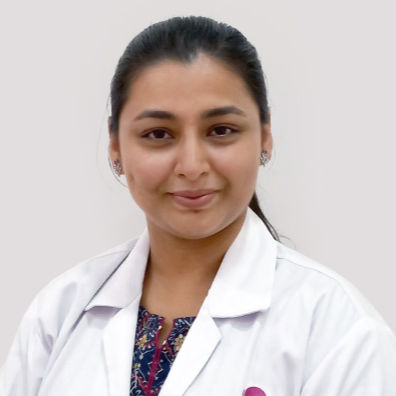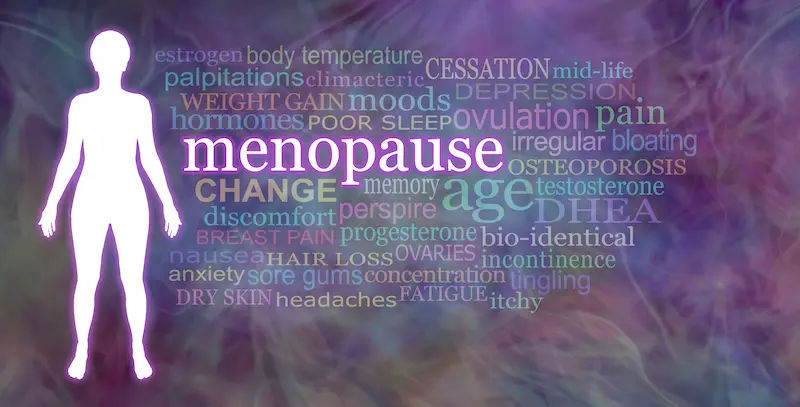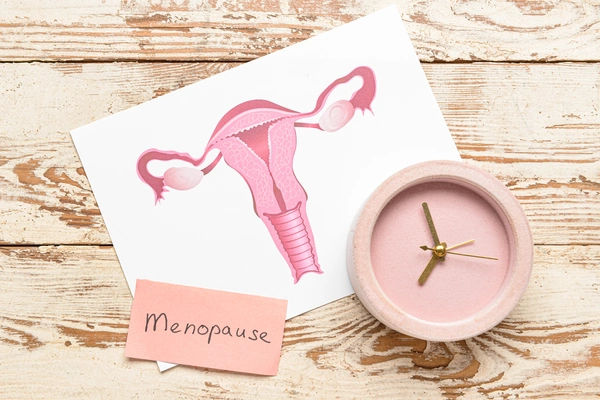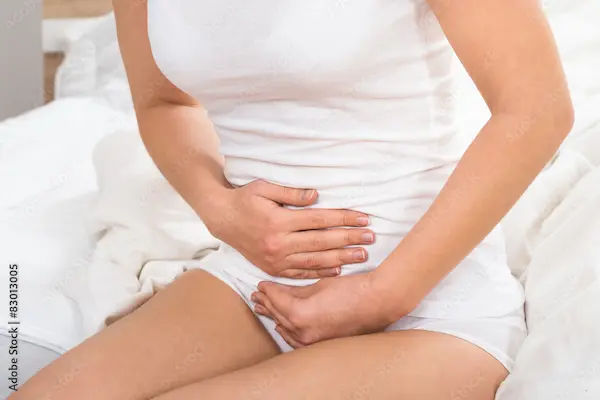Guide to 5 Treatment Modalities Manage Menopause
Explore 5 effective treatment modalities for menopause, including hormone therapy, non-hormonal medications, lifestyle changes, complementary therapies, and vaginal health solutions to manage symptoms and improve well-being.

Written by Dr. Siri Nallapu
Reviewed by Dr. Rohinipriyanka Pondugula MBBS
Last updated on 13th Jan, 2026

Introduction
Menopause is a natural biological transition, not a medical condition to be "cured." Yet, for many women, the journey through perimenopause and menopause can be challenging, marked by symptoms like disruptive hot flashes, mood swings, and sleep disturbances. The good news? You have more options than ever to manage this phase effectively. This comprehensive guide explores the five primary treatment modalities for menopause, from well-established medical interventions to powerful lifestyle adjustments and complementary therapies. Our goal is to empower you with knowledge, helping you understand the pros and cons of each approach so you can collaborate with your healthcare provider to create a personalised menopause management plan that aligns with your symptoms, health profile, and personal preferences. Let's navigate this new chapter together.
Understanding Menopause and Its Impact
Menopause is defined as the point in time 12 months after a woman's last menstrual period. The years leading up to this point, called perimenopause, are when most women experience symptoms due to hormonal fluctuations. It's crucial to understand that menopause affects nearly every system in the body. While hot flashes are the most famous symptom, the impact is far broader.
What Exactly is Menopause?
Menopause marks the end of a woman's reproductive years, resulting from the natural decline of reproductive hormones—primarily oestrogen and progesterone—produced by the ovaries. This transition typically occurs between the ages of 45 and 55, but it can happen earlier or later. Perimenopause can last for several years, and it's during this time that the rollercoaster of hormone levels triggers the most significant physical changes.
Common Symptoms Beyond Hot Flashes
While vasomotor symptoms (hot flashes and night sweats) are hallmark signs, the impact of declining oestrogen is extensive. Many women experience:
- Psychological: Mood swings, irritability, anxiety, and difficulty concentrating ("brain fog").
- Physical: Sleep disturbances, vaginal dryness, pain during intercourse, decreased libido, joint pain, and changes in skin and hair.
- Long-term health: Increased risk of osteoporosis (due to bone density loss) and cardiovascular disease.
Understanding this full spectrum is key to choosing the right modalities for menopause management, as some treatments target specific symptom clusters.
Consult an Obstetrician-Gynaecologist for the best advice
Modality 1: Hormone Therapy (HT)
For decades, hormone therapy (HT), formerly known as hormone replacement therapy (HRT), has been the most effective medical treatment for relieving common menopausal symptoms, particularly moderate to severe hot flashes and vaginal discomfort.
How Hormone Therapy Works
HT works by supplementing the hormones your body is no longer producing in sufficient quantities. By restoring oestrogen levels, it can effectively calm the overactive hypothalamus—the part of the brain that regulates temperature—thereby reducing or eliminating hot flashes and night sweats. It also directly addresses vaginal atrophy by replenishing tissues.
Types of HT: Systemic vs. Localised
- Systemic HT: This is absorbed into the bloodstream and distributed throughout the body. It comes in pills, skin patches, gels, and sprays. It's best for treating widespread symptoms like hot flashes, night sweats, and bone loss.
- Localised HT: This includes low-dose vaginal creams, tablets, and rings. These products deliver oestrogen directly to the vaginal tissue with minimal absorption into the bloodstream, making them ideal for treating symptoms of vaginal dryness and painful intercourse without the systemic effects.
Weighing the Benefits and Risks of HRT
The decision to use HT is personal and must be made with a doctor after a thorough evaluation of your personal and family health history. Benefits include highly effective symptom relief and protection against osteoporosis. Risks, which vary by type, dose, and duration of therapy, can include a small increased risk of blood clots, stroke, and breast cancer with certain forms of systemic HT. For most healthy women under 60 within 10 years of menopause, the benefits often outweigh the risks.
Modality 2: Non-Hormonal Prescription Medications
For women who cannot or prefer not to take hormones, several non-hormonal prescription medications can be effective, particularly for managing hot flashes and mood-related symptoms.
Managing Hot Flashes with Alternatives
Certain antidepressants, specifically low-dose SSRIs (selective serotonin reuptake inhibitors) like paroxetine (Brisdelle), are FDA-approved for treating hot flashes. SNRIs like venlafaxine are also commonly prescribed off-label. These medications can reduce the frequency and severity of hot flashes by affecting the brain's neurotransmitters. Another option is the anti-seizure medication gabapentin, which has also proven effective for this purpose.
Addressing Mood and Sleep Changes
The same class of antidepressants (SSRIs/SNRIs) can be doubly beneficial for women experiencing both hot flashes and significant mood swings or depression. For sleep issues that persist despite good sleep hygiene, a doctor might recommend short-term use of other sleep aids. If your low mood or anxiety is significantly impacting your daily life, consult a doctor online with Apollo24|7 for further evaluation and to discuss if these medications are right for you.
Modality 3: Lifestyle and Dietary Adjustments
Lifestyle changes are a foundational modality for managing menopause that can significantly improve quality of life with no side effects. They empower you to take an active role in your well-being.
Nutritional Strategies for Symptom Relief
What you eat can directly influence your symptoms. To manage hot flashes, avoid common triggers like spicy foods, caffeine, and alcohol. Incorporate phytoestrogen-rich foods like soybeans, flaxseeds, and tofu, which have weak oestrogen-like effects that may help balance hormones for some women. Ensure adequate calcium and Vitamin D intake for bone health—Apollo24|7 offers a convenient home collection for tests like vitamin D to check your levels.
The Power of Physical Activity
Regular exercise is a powerhouse for combating menopausal challenges. It helps:
- Stabilise mood and reduce stress through endorphin release.
- Maintain a healthy weight, which can be more difficult during menopause.
- Strengthen bones and reduce the risk of osteoporosis.
- Improve sleep quality.
- Aim for a mix of cardio, strength training, and flexibility exercises.
Stress Management and Sleep Hygiene
Chronic stress can worsen every menopausal symptom. Practices like meditation, deep breathing exercises, and
mindfulness can lower stress hormones. Prioritising sleep hygiene—maintaining a cool, dark room, establishing a regular bedtime routine, and avoiding screens before bed—is crucial for combating insomnia.
Modality 4: Complementary and Alternative Medicine (CAM)
Many women explore CAM therapies to supplement other treatments. While evidence can be mixed, some approaches show promise and are worth discussing with your doctor.
Herbal Remedies and Supplements
Popular supplements include black cohosh (for hot flashes) and evening primrose oil. However, quality and
effectiveness can vary greatly. It is vital to purchase from reputable brands and inform your doctor, as supplements can interact with other medications.
Mind-Body Practices: Yoga and Acupuncture
Studies suggest that yoga can reduce the frequency of hot flashes and improve psychological well-being. Similarly, acupuncture for hot flashes has shown promise in some clinical trials, potentially by influencing the nervous system. These practices also offer significant stress-reduction benefits.
Modality 5: Vaginal Health and Topical Treatments
Vaginal health is a critical aspect of well-being that is often overlooked. The genitourinary syndrome of menopause (GSM) causes dryness, itching, and pain.
Combating Vaginal Dryness and Atrophy
Beyond prescription localised oestrogen, there are excellent over-the-counter options. Long-acting vaginal moisturisers (e.g., Replens) can be used regularly to hydrate tissues, while water-based lubricants (e.g., K-Y Jelly, Astroglide) are essential for reducing discomfort during intercourse.
Over-the-Counter vs. Prescription Options
If OTC products don't provide sufficient relief, it's time to see a doctor. Prescription options include not only localised oestrogen but also newer non-oestrogen medications like ospemifene (Osphena) and the novel vaginal DHEA insert (prasterone), which can help restore vaginal tissue health.
Creating Your Personalised Menopause Management Plan
There is no single best approach. Your plan should be as unique as you are. It might involve a combination of these modalities—for example, using localised vaginal oestrogen for GSM, practicing yoga for stress and mild hot flashes, and taking a vitamin D supplement for bone health. If your condition does not improve after trying these methods, book a physical visit to a doctor with Apollo24|7 to reassess your strategy. Keep a symptom diary to track what works and what doesn't, and maintain open communication with your healthcare provider.
Conclusion
Navigating menopause is a deeply personal journey, but you don't have to navigate it without a map. This guide to the five core treatment modalities for menopause—from medical interventions like HT and non-hormonal prescriptions to the empowering practices of lifestyle changes and complementary therapies—provides a robust toolkit for taking control of your health. Remember, the goal isn't to eliminate menopause but to manage its symptoms effectively so you can continue to thrive. Be patient with yourself, advocate for your needs with healthcare providers, and don't hesitate to mix and match strategies until you find what brings you the most relief and vitality. Your well-being is worth the investment.
Consult an Obstetrician-Gynaecologist for the best advice
Consult an Obstetrician-Gynaecologist for the best advice

Dr. Mona Yadav
Obstetrician and Gynaecologist
19 Years • MBBS, MD (Obstetrics & Gynaecology)
Dombivli
Nulife multispeciality, Dombivli

Dr. Ramya G S
Obstetrician and Gynaecologist
11 Years • MBBS, DGO - Obstetrics & Gynaecology, DNB - Obstetrics & Gynaecology
Bengaluru
Apollo Clinic, JP nagar, Bengaluru

Dr. Soumya P
Obstetrician and Gynaecologist
6 Years • MBBS,MS (OBST & GYNAE)
Bengaluru
Apollo Clinic, JP nagar, Bengaluru

Dr. Divyashree S
Obstetrician and Gynaecologist
7 Years • MBBS, MS (OBG)
Bengaluru
Apollo Clinic, JP nagar, Bengaluru

Dr. Harshitha B R
Obstetrician and Gynaecologist
11 Years • MBBS, DGO( OBS & GYN)
Bengaluru
Apollo Clinic, JP nagar, Bengaluru
Consult an Obstetrician-Gynaecologist for the best advice

Dr. Mona Yadav
Obstetrician and Gynaecologist
19 Years • MBBS, MD (Obstetrics & Gynaecology)
Dombivli
Nulife multispeciality, Dombivli

Dr. Ramya G S
Obstetrician and Gynaecologist
11 Years • MBBS, DGO - Obstetrics & Gynaecology, DNB - Obstetrics & Gynaecology
Bengaluru
Apollo Clinic, JP nagar, Bengaluru

Dr. Soumya P
Obstetrician and Gynaecologist
6 Years • MBBS,MS (OBST & GYNAE)
Bengaluru
Apollo Clinic, JP nagar, Bengaluru

Dr. Divyashree S
Obstetrician and Gynaecologist
7 Years • MBBS, MS (OBG)
Bengaluru
Apollo Clinic, JP nagar, Bengaluru

Dr. Harshitha B R
Obstetrician and Gynaecologist
11 Years • MBBS, DGO( OBS & GYN)
Bengaluru
Apollo Clinic, JP nagar, Bengaluru
More articles from Menopause
Frequently Asked Questions
1. What is the safest natural remedy for menopause hot flashes?
While effectiveness varies, some of the best-studied natural remedies for menopause symptoms include soy isoflavones and black cohosh. Practicing paced respiration (slow, deep breathing) at the onset of a hot flash can also help reduce its intensity. Always discuss supplements with your doctor to ensure they are safe for you.
2. Can I manage menopause without any hormones?
Absolutely. Many women successfully manage menopause without hormones through a combination of non-hormonal prescription medications, lifestyle changes (diet, exercise, stress reduction), and over-the-counter solutions for specific issues like vaginal dryness.
3. How long should I expect to experience menopausal symptoms?
The duration varies widely. On average, women experience vasomotor symptoms (hot flashes/night sweats) for about 7-10 years. However, for some, it may be shorter, and for others, they can persist for much longer.
4. Are 'bioidentical' hormones safer than traditional HRT?
The term 'bioidentical' is often used in marketing. FDA-approved bioidentical hormones (like estradiol) have known doses and are thoroughly tested. However, custom-compounded 'bioidentical' hormones are not FDA-approved, meaning their safety, purity, and efficacy are not guaranteed. They are not inherently safer than traditional HRT.
5. When should I see a doctor about my menopause symptoms?
You should consult a doctor if your symptoms are disrupting your sleep, daily life, or mental well-being, or if you have questions about the best treatment options for your personal health profile. You can consult a doctor online with Apollo24|7 to get started from the comfort of your home.



